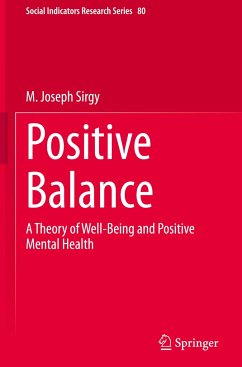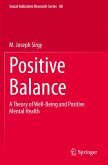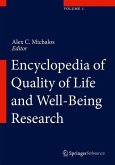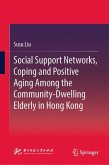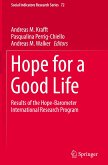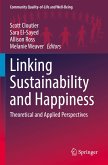The book provides a new theory of well-being designed to integrate many disparate concepts of well-being, such as subjective well-being, personal happiness, mental well-being, emotional well-being, psychological well-being, hedonic well-being, social well-being, life satisfaction, domain satisfaction, and eudaimonia. It lays the foundation for a new a theory of mental well-being based on a hierarchical perspective of positive mental health and guided by the concept of positive balance.
Written by a well-known expert in the field, this book addresses the issue of positive balance related to physiological, emotional, cognitive, meta-cognitive, developmental and social-ecological levels of an individual and analyses the factors at each level that contribute to an individual's positive mental health experience. It discusses in detail the effects of neurochemicals such as dopamine, serotonin, or cortisol; positive and negative affect; satisfaction in salient and multiple life domains vis-à-vis dissatisfaction in life domains; positive versus negative evaluations about one's life using certain standards of comparison; positive psychological traits of personal growth and intrinsic motivation, etc. vis-à-vis negative traits like pessimism and impulsiveness; and perceived social resources like social contribution and social actualization vis-à-vis perceived constraints like exclusion and ostracism. This original work is of interest to students, researchers and practitioners of quality of life and wellbeing studies, positive psychology, developmental psychology and mental health..
Written by a well-known expert in the field, this book addresses the issue of positive balance related to physiological, emotional, cognitive, meta-cognitive, developmental and social-ecological levels of an individual and analyses the factors at each level that contribute to an individual's positive mental health experience. It discusses in detail the effects of neurochemicals such as dopamine, serotonin, or cortisol; positive and negative affect; satisfaction in salient and multiple life domains vis-à-vis dissatisfaction in life domains; positive versus negative evaluations about one's life using certain standards of comparison; positive psychological traits of personal growth and intrinsic motivation, etc. vis-à-vis negative traits like pessimism and impulsiveness; and perceived social resources like social contribution and social actualization vis-à-vis perceived constraints like exclusion and ostracism. This original work is of interest to students, researchers and practitioners of quality of life and wellbeing studies, positive psychology, developmental psychology and mental health..

